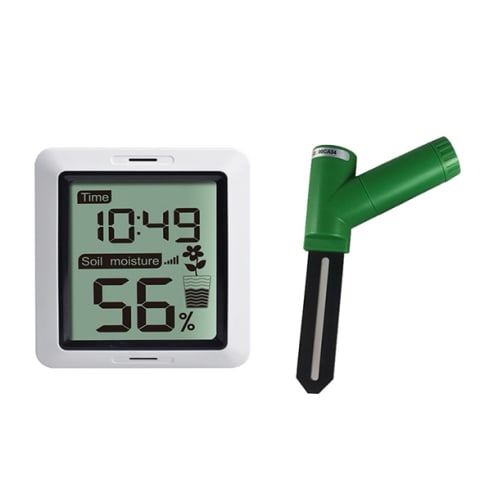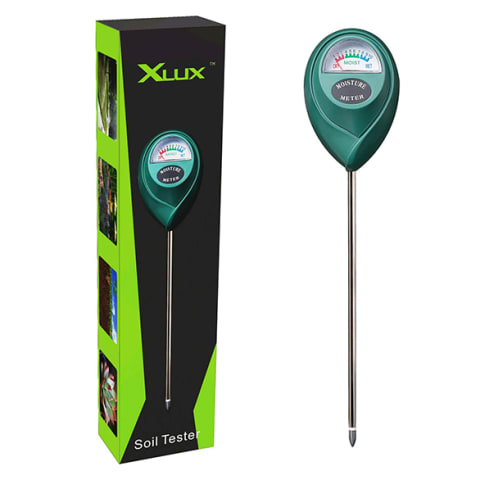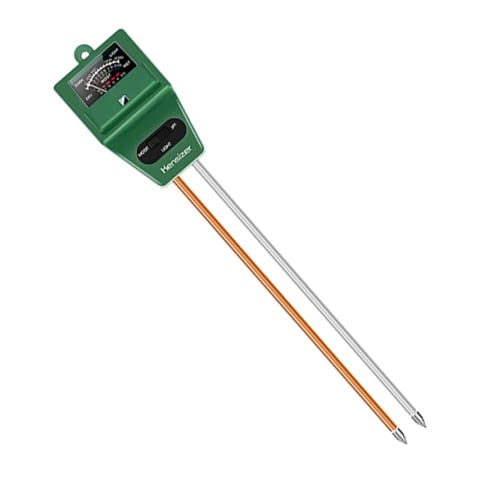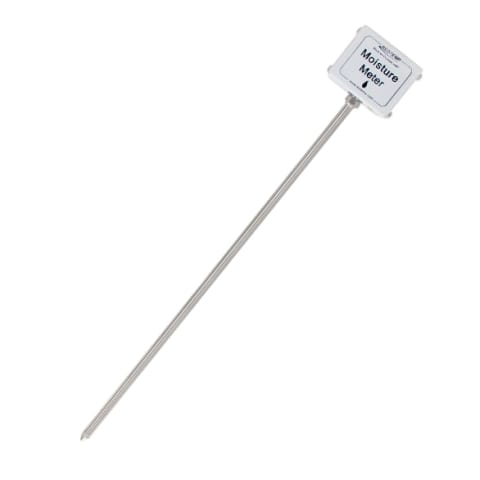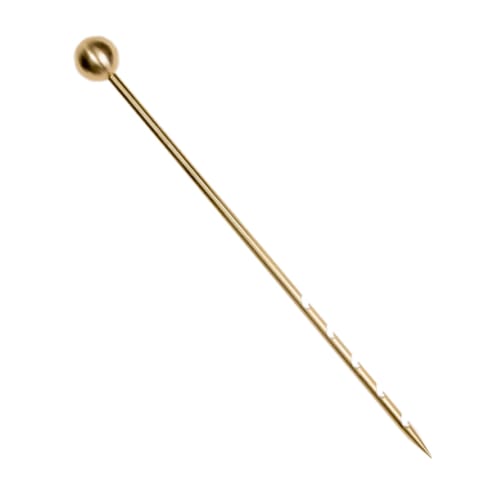Soil moisture meters are designed to prevent overwatering and contribute to the health of your plants. Here’s a breakdown of five meters that plant professionals trust, and how they recommend using them. “Even at first glance, the top layer of soil could look dry, but beneath the surface, it could have plenty of moisture,” explains Kelly Funk, the president of Park Seed. “Meters will tell you instantly whether plants need water or have enough.” This makes them a helpful tool for people who are prone to overwatering, don’t have much time to dedicate to plant care, or have many plant varieties at home and have trouble keeping track of who needs what. (Your Maidenhair fern will need far more water than the moon cactus next to it.) Brooke Blocker, the founder of Outside In, adds that they can also be good for those with tall indoor plants and trees since they can reach so far into their soil. Contrary to what you might assume, these meters don’t measure moisture per se, but electrical conductivity. “As water is a natural conductor of energy, more water in your soil would translate to more energy conductivity, and less moisture translates to less conductivity,” explains Lorin Nielsen, the editor in chief of Epic Gardening. You can also find more complex meters that measure things like soil acidity and temperature. Pros: Granular reading, easy-to-read display Cons: Not suitable for hard soil ECOWITT Soil Moisture Tester ($26.99) Many experts agree that sticking with a one-note reader like this is a good move, as fancier meters that measure things like pH, soil nutrients, etc., leave more room for error. Sometimes, simple is best! Pros: Affordable, easy to use Cons: Not suitable for larger pots XLUX Soil Moisture Meter ($12.99) Pros: No batteries required, 3-in-1 reading Cons: pH and sunlight readings might not be accurate all the time Kensizer 3-in-1 Soil Tester ($13.99) They are also very sturdy and suitable for outdoor plants, raised beds, and larger houseplants. They have a simple analog reading on a scale of zero to 10, so those looking for more granular information will want to go with something else. Pros: Easy to read, long probe Cons: Simple reading on scale of zero to 10 (a con for some, pro for others) REOTEMP Garden and Compost Moisture Meter ($29.99) Pros: Aesthetically pleasing, teaches you more about your plants Cons: Requires you to make your own readings Greenery Unlimited Monitor Brass Soil Probe ($35) Emma received her B.A. in Environmental Science & Policy with a specialty in environmental communications from Duke University. In addition to penning over 1,000 mbg articles on topics from the water crisis in California to the rise of urban beekeeping, her work has appeared on Grist, Bloomberg News, Bustle, and Forbes. She’s spoken about the intersection of self-care and sustainability on podcasts and live events alongside environmental thought leaders like Marci Zaroff, Gay Browne, and Summer Rayne Oakes.


